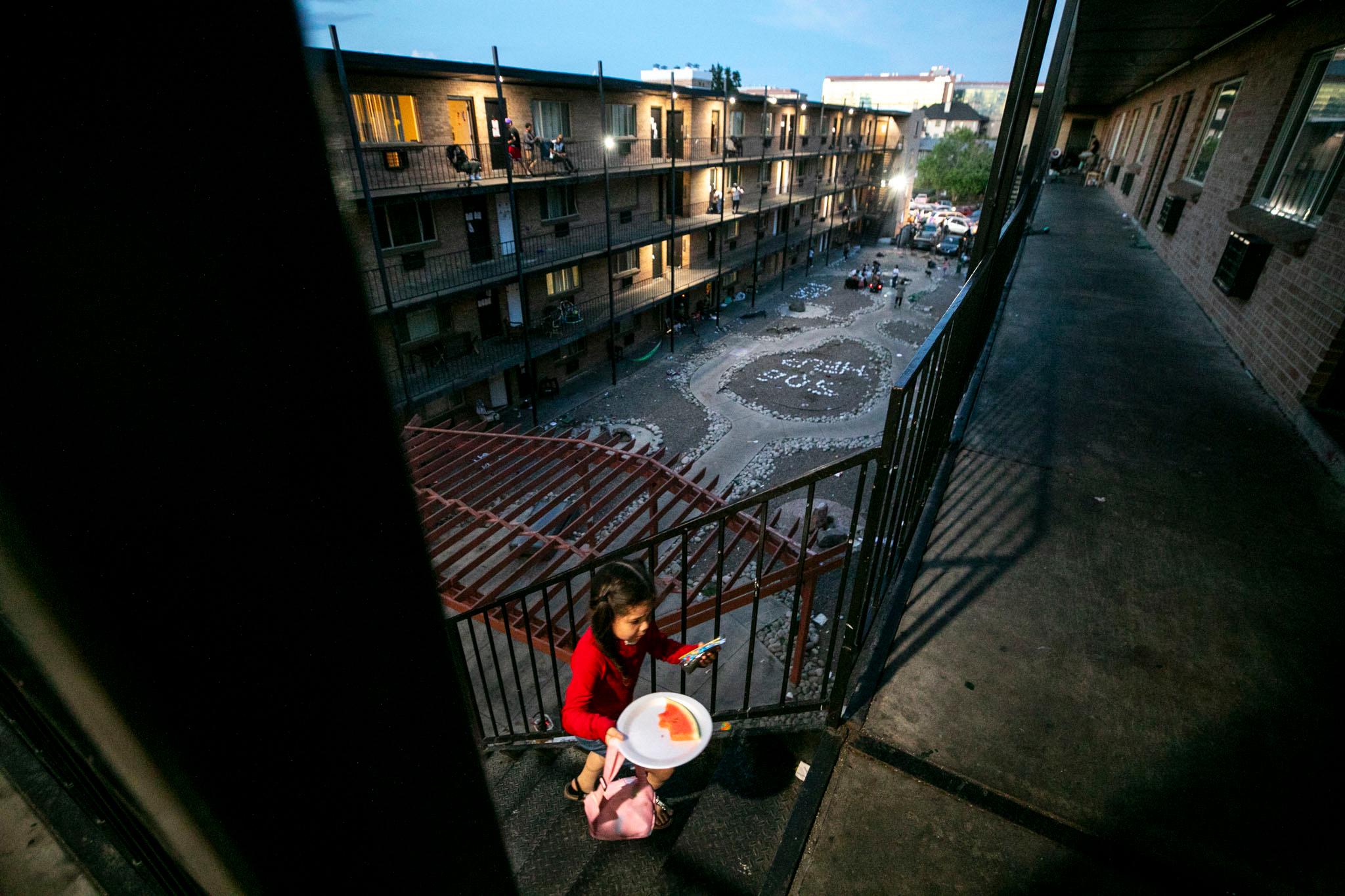Denver landlords are filing eviction cases in record numbers.
Denver County Court has already seen 13,478 cases this year, breaking a record set last year.
In fact, it's the highest number of eviction court cases on record, and there are still two months left in the year. Data tracked by the courts goes back to 2008.
Attorney Zach Neumann, head of the Community Economic Defense Project, previously told Denverite the numbers are “appalling.”
This year also saw a record number of monthly cases in April, while October saw the third-highest number.
Prior to the pandemic, Denver averaged about 9,000 eviction cases yearly.
After COVID-19 hit, the rate of eviction cases dropped radically because of dramatic government action. The federal government declared eviction moratoria. And the American Rescue Plan spent millions on renter stability.
In 2020, there were fewer than 4,000 Denver eviction cases, and in 2021, there were fewer than 5,000.
The federal government lifted the last eviction moratorium in September 2021. Since then, the numbers have shot up, especially as rents have remained out of reach for many.
Money from ARPA will dry up entirely by the end of this year. And though the city poured $30 million into rental assistance programs, court cases continued rising.
As it's tried to extend the resources, the city's Department of Housing Stability has put new restrictions on who can get help.
Three types of households currently qualify:
- People who have been ordered by a judge to leave their homes
- People subject to a utility shut-off notice
- People who moved from their previous home because of the threat of eviction.
What are the advocates saying?
Courts and attorneys are struggling to keep up with the sheer number of Denver eviction cases, Neumann said previously. And eviction cases represent a fraction of people facing housing insecurity.
He explained that for every household facing an eviction court case, another two households “self-evict” before they’re brought to court.
The personal costs of eviction are high. The Centers for Disease Control and Prevention associates eviction with higher rates of suicide, addiction, mental health problems and homelessness.
As Denverite reported in a nine-month investigation after a man died by suicide during an eviction, the City of Denver does little to address the health consequences of eviction.
Denver eviction rates are growing faster than the population.
Apartment owners say eviction is an important function in the rental market. Landlords say the state of Colorado has made it too hard to remove tenants, which has consequences for property owners and managers.
Drew Hamrick of the Apartment Association of Metro Denver previously said “eviction numbers are a reflection of the growth of rental units.” With the city’s growth, there are simply more people to evict.
But housing growth alone doesn’t explain the rise in evictions. The eviction case count is rising far faster than the number of new units opening in the market.
There is one bright spot in the numbers: While landlords are filing more eviction cases, the percentage of those cases ending in sheriff deputies carrying out an eviction has dropped since before the pandemic. In part, this is because policymakers have invested more in rental assistance and legal support.
The courts have become a tool to connect tenants to eviction assistance programs, legal support and resolutions with landlords. Another potential source or relief: The median rent in Denver has dropped to $2,150 — down $111 year over year. But those prices remain unaffordable for many working people.
Denver voters and leaders are making big decisions
On Nov. 5, voters will decide whether to authorize a new sales tax that would raise billions over the next few decades to create and preserve income-restricted housing units for low- and middle-income residents.
Also, the Denver City Council will weigh Mayor Mike Johnston’s proposed 2025 budget. The spending plan includes $20 million in temporary rental assistance. Separately, another $2 million would go to legal defense services.
Johnston also proposed spending $60 million on the longer-term solution of creating and preserving affordable housing, plus $57.5 million on his efforts to end street homelessness, in 2025.
How are you faring in the Denver rental market? Shoot us an email here.











